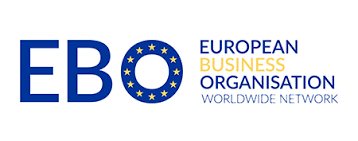European business confidence in China has hit its lowest point since records began, according to the latest annual survey conducted by the EU Chamber of Commerce in China. This year, 73% of European companies said doing business in China has become more difficult, marking the fourth consecutive year of worsening sentiment. This is even lower than levels seen during the peak of the COVID-19 pandemic.
Key Findings from the EU Chamber of Commerce Survey
Geopolitical tension and slow economic growth drive pessimism
The survey, released on Wednesday and based on responses from 503 European companies collected between January and February, reveals a troubling trend: the environment for foreign businesses in China is becoming increasingly hostile.
Jens Eskelund, president of the EU Chamber, emphasized that while companies still value China’s well-developed supply chains, growing regulatory challenges and uncertainty are causing many to rethink their future in the country.
“We haven’t seen an inflection point yet,” Eskelund noted. “A lot of it boils down to uncertainty.”
Profitability and Investment Outlook Paint a Grim Picture
Few companies expect profitability to improve in China in the next two years
Only 12% of respondents said they are optimistic about business profitability in China over the coming two years—a record low. In addition, only 38% of companies plan to expand their presence in China in the next 12 months.
Despite Beijing’s attempts to improve foreign investment conditions, obstacles remain. A record 63% of surveyed companies said they missed out on business opportunities due to market access restrictions and regulatory barriers. Some sectors, like medical devices, even reported unfair treatment in public procurement processes, with domestic companies receiving favorable treatment.
Industry Insights: Cosmetics Decline, Aviation Thrives
Cosmetic companies face major setbacks while aerospace sees opportunity
The cosmetics industry experienced one of the most significant downturns, with a 45% revenue drop in 2024—only the second such fall in a decade. This has been attributed to weak consumer demand and rising local competition. Conversely, businesses in aviation and aerospace sectors found the Chinese market more accessible compared to past years.
Supply Chain Strategy Remains Crucial
Despite uncertainty, China’s supply chain remains attractive for many
Even amid growing doubts, China’s role in global supply chains remains strong. About 25% of European firms said they are increasing their onshoring efforts within China to better meet domestic demand and localization requirements. In contrast, only 10% are developing alternate supply chains abroad, although nearly half reported their Chinese suppliers are moving operations elsewhere.
Eskelund explained that cost-effective and high-quality Chinese components are key to staying competitive globally. He also noted that companies are watching closely to see how the Chinese market evolves over the next few years.
Hope for Change Hinges on Policy Reform
Over half of firms would invest more if market access improved
According to the survey, 53% of businesses said they would boost investment in China if meaningful reforms were implemented to ease market access. This points to the fact that while confidence is low, many companies are willing to stay and invest—if the environment becomes more favorable.
Looking Ahead: China-EU Summit in July
Upcoming political dialogue may help ease business concerns
With a China-EU summit scheduled in Beijing this July, leaders are expected to address growing tensions and economic cooperation. The European Union remains China’s second-largest trading partner by region, making this dialogue vital for both sides.
The drop in European business confidence in China signals a major shift in how foreign firms view the Chinese market. While supply chain advantages continue to draw companies in, rising regulatory issues, weak consumer demand, and political uncertainty are forcing many to reconsider their long-term strategies. With the China-EU summit on the horizon, there may be a chance for positive change—but for now, uncertainty prevails. Stay updated with 10X Times News.






